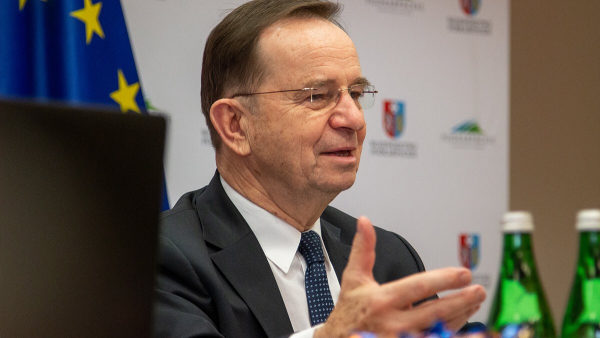
This was the sentiment echoed by ECR President Marshal Władysław Ortyl during a debate on the EU budget with Mr Johan Van Overtveldt, ECR MEP and Chair of the Committee on Budgets in the European Parliament.
For Marhsal Ortyl, what is important for European regions is not only the "size of the budget and the recovery facility", but also the fact that they will most help those who were "disproportionately affected by the pandemic". According to Mr Ortyl, "this is a good outcome of the negotiations".
He continued to say that another positive aspect is the obligatory consultation that the Member States must have with their local and regional authorities when deciding on the national recovery and resilience plans. Regions in many countries have been widely consulted by the central governments and identified projects they need most. The Marshal gave the example of his home country, Poland, where "approximately half of the projects under the recovery facility were proposed by the central government and half by the regions".
On the other hand, Mr Ortyl, Marshal of the Podkarpackie region in Poland, urged regions to remember that even though the recovery facility was supposed to be "easy and fast", it is not. Experiences of regions show that implementing it will be more complicated than the Cohesion Policy, with approximately 60% of allocations under the facility "rigid, and subject to specific financial spending rules (37% on climate change and 20% on digitalisation)".
The ECR President recognised that although "investments in digitalisation and climate protection are needed", many local and regional actors want "more flexibility" to be able to allocate financial help where it's needed most. He concluded by saying that the European Parliament should keep this in mind when it comes to drawing up financial instruments.
The debate took place on 2 February as part of the European Committee of the Regions Bureau meeting in the context of the February plenary session.

